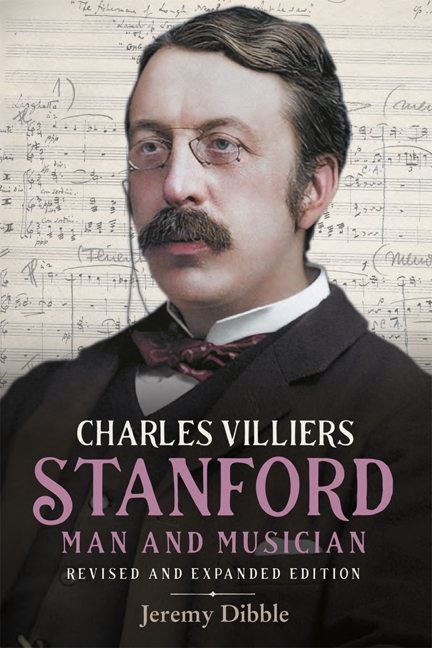Book contents
- Frontmatter
- Dedication
- Contents
- List of Illustrations
- List of Music Examples
- List of Analytical Tables
- Preface and Acknowledgements
- Supplementary Introduction to the Revised and Expanded Edition
- List of Sigla and Abbreviations
- I Early Influences and Impressions, 1852–70
- II Formative Years, 1870–87
- III Recognition, 1888–1901
- IV The New Generation, 1901–14
- V War and Decline, 1914–24
- Appendix: List of Works
- Select Bibliography
- Index of Works
- General Index
- Irish Musical Studies Previous volumes
8 - Shamus O’Brien, the Requiem and the Leeds Philharmonic Society (1896–1900)
Published online by Cambridge University Press: 12 May 2024
- Frontmatter
- Dedication
- Contents
- List of Illustrations
- List of Music Examples
- List of Analytical Tables
- Preface and Acknowledgements
- Supplementary Introduction to the Revised and Expanded Edition
- List of Sigla and Abbreviations
- I Early Influences and Impressions, 1852–70
- II Formative Years, 1870–87
- III Recognition, 1888–1901
- IV The New Generation, 1901–14
- V War and Decline, 1914–24
- Appendix: List of Works
- Select Bibliography
- Index of Works
- General Index
- Irish Musical Studies Previous volumes
Summary
Christmas 1895 was spent in the Palast Hotel in Berlin where Stanford was later joined by Borwick and Plunket Greene. The concert at the Singakademie on 30 December, organised in collaboration with Wolff, was intended to be a major advertisement for British music in the German capital and Stanford, who was to conduct the Berlin Philharmonic Orchestra, hoped very much that, with assistance from the British Embassy, the Kaiser and other governmental dignitaries would attend. The audience, which included many eminent German musicians, was, according to the reviews, enthusiastic. Early in the new year he had the chance to meet Brahms for what proved to be the last time. The two men had been in contact in 1895 when Stanford had sent Brahms a copy of his Irish Songs and Ballads to Vienna in exchange for some portrait photographs Brahms had promised him:
Your parcel has given me extraordinary pleasure, and I thank you from my heart.
I immediately looked up my beautiful old edition of Moore, to enable me to make comparisons, and this better to compare and judge your work.
I had not forgotten my promise; but, unfortunately, I no longer possess the desired portrait, and in place of it I send you two others. I trust that this substitution will satisfy you.
In Berlin Stanford enjoyed the company of Joachim and other prominent musicians such as Eugene d’Albert who played both of Brahms's piano concertos under Brahms's direction (10 January) – it was the last time he appeared before the public as a conductor. Afterwards Joachim gave a dinner party in his honour to which Stanford, Hausmann and Herzogenberg were invited; it was a convivial affair which gave rise to the famous vignette regarding Brahms's personal loathing of eulogy:
Joachim in a few well-chosen words was asking us not to lose the opportunity of drinking the health of the greatest composer, when, before he could finish the sentence, Brahms bounded to his feet, glass in hand, and called out, ‘Quite right! Here's Mozart's health!’ and walked round, clinking glasses with us all.
‘We had a glorious time in Berlin and that last supper was a delightful end,’ he wrote to Joachim after he had arrived back in London.
- Type
- Chapter
- Information
- Charles Villiers StanfordMan and Musician, pp. 321 - 386Publisher: Boydell & BrewerPrint publication year: 2024

